Pakistani Guy Dressed Up Like Women Doing Comedy
The daring comedians pushing boundaries
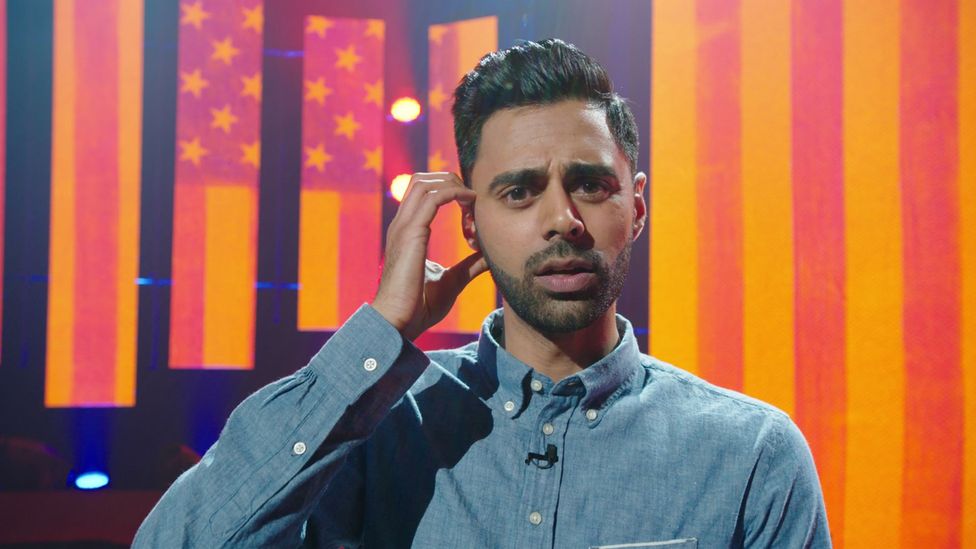
US comics of South Asian descent are telling new kinds of stories – and winning fans from many different backgrounds, writes Laya Maheshwari.
I
In 2016 Larry Wilmore was announced as the host of the White House Correspondents' Dinner, with more than four months to prepare his comedy routine for the glitzy event, the last such dinner with President Obama. Fast forward one year, and the same event seemed akin to a poisonous snake from which everyone wanted to run away. It was no secret that few comedians wanted to headline the Correspondents' Dinner now that Donald Trump had become the US president – and then he decided not to attend anyway. Who knows how many rejections it took for the organisers finally to reach out to Hasan Minhaj? The Indian-American comic, known primarily for his appearances on The Daily Show, had only 19 days to hone his monologue. When Minhaj phoned Wilmore to tell him the news, the latter exclaimed, "They just called you?"
- The 100 greatest comedies of all time
- Why comedy is not universal
- When political comedy is a case of life and death
And yet, Minhaj, who was a much lower-profile public figure than previous hosts, who included Jon Stewart and Stephen Colbert, came up with a memorable monologue that veered from biting political satire to trenchant commentary on the role of the media in the Trump era. He ended with a rousing reflection: "Only in America can a first-generation Indian-American Muslim kid get on the stage and make fun of the president." And with that, Minhaj went from a last-ditch option to a man of the moment. At the time of writing, more than six million people have seen his monologue on YouTube.
The art form of stand-up comedy thrives on being irreverent and gains potency by holding society accountable. Yet, it is an unfortunate truth that stand-up comedy too is susceptible to replicating existing social hierarchies, as reflected by the prevalence of straight white males as the titans of the field. For too long, under the garb of political incorrectness and glib humour, comics have relied on clichéd ethnic stereotypes and downright toxic personas. But now, even beyond Minhaj, several American comedians of Indian or Pakistani ethnicity are becoming household names in the US. And as the descendants of immigrants to the US so often do, these comics of South Asian descent are helping Americans of all backgrounds see themselves, and the state of the US, more clearly.
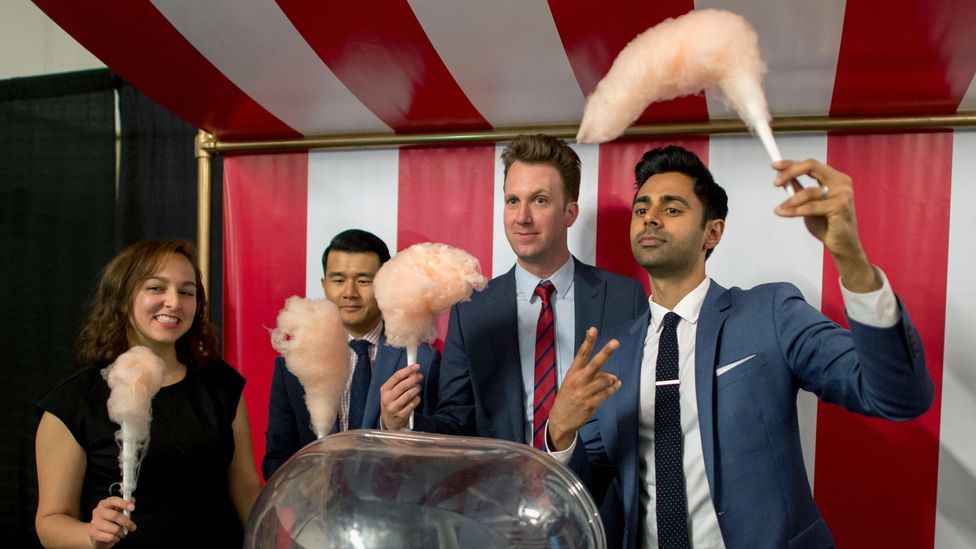
Minhaj has become a Daily Show star with his coverage of the US national political conventions in 2016 and his hosting of the White House Correspondents dinner (Credit: Alamy)
Aziz Ansari is probably the most famous of them all, having gathered fans at various junctures – from his turn as government employee Tom Haverford in Parks and Recreation, his supporting roles in various Judd Apatow productions such as Funny People and Get Him to the Greek, his stand-up comedy tours and, most recently, his award-winning Netflix series Master of None, for which he also serves as writer and, occasionally, director.
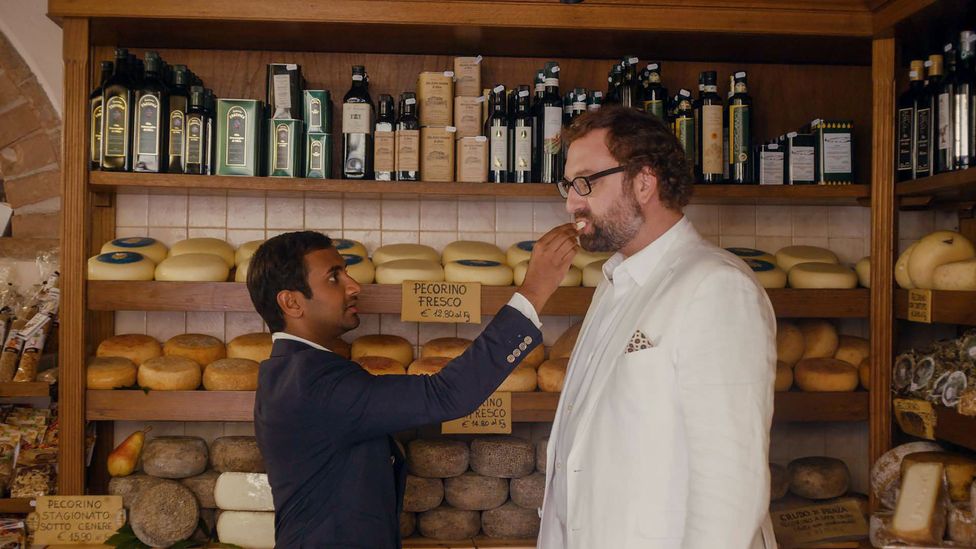
Aziz Ansari broke new creative ground with the second season of Master of None, in which he moves to Italy to learn the art of making pasta (Credit: Netflix)
According to Rotten Tomatoes, the most well-reviewed film in the last few months of 2017 was neither Christopher Nolan's Dunkirk nor Edgar Wright's Baby Driver, but instead – with an astounding 98% rating – the modest romantic comedy The Big Sick. Pakistani-American comedian Kumail Nanjiani stars in the film, which is based on the real-life romance between him and his wife Emily V Gordon. (The two wrote the script together.) Made on a relatively shoestring budget of $5m (£3.7m), The Big Sick was a phenomenon at the 2017 Sundance Film Festival and has earned nearly $50m (£37m) at the box-office worldwide, becoming one of the most successful independent movies of the year.
Comedic melting pot
The success of both Master of None and The Big Sick is remarkable not just because their creative leads – both behind and in front of the camera – are people of colour, but also because these people of colour have experienced success telling their own stories. Artists of colour have served as window dressing in other people's stories for years; but it is rare and thrilling to see them call the shots, tell stories we have been precluded from seeing until now, and actually find an audience willing to witness their craft. In Master of None, Ansari goes so far as to cast his real-life father as his father in the show. In The Big Sick, the Pakistani-American characters extensively converse with each other in Urdu – just the way, one imagines, conversations unfolded in Nanjiani's household – for extended sections and audiences have to switch from an English snippet to reams of subtitles and back again.
The momentum Minhaj gained from his antics in Washington peaked with his own Netflix special, Homecoming King, where he too plumbs the depths of his childhood in Davis, California, for both humour and pathos. It's not common to see a stand-up comedy set where the performer goes from joking about a strict patriarchal figure to being heartbroken when his (white) high-school girlfriend's parents consider him unworthy of being photographed with her at prom. To Minhaj's credit, he doesn't tackle such moments in a half-baked manner; the camera draws up close to his huge watery eyes as he seems to travel back in time to that moment when he realised just how marginalised he was from people he lived around and saw every day.
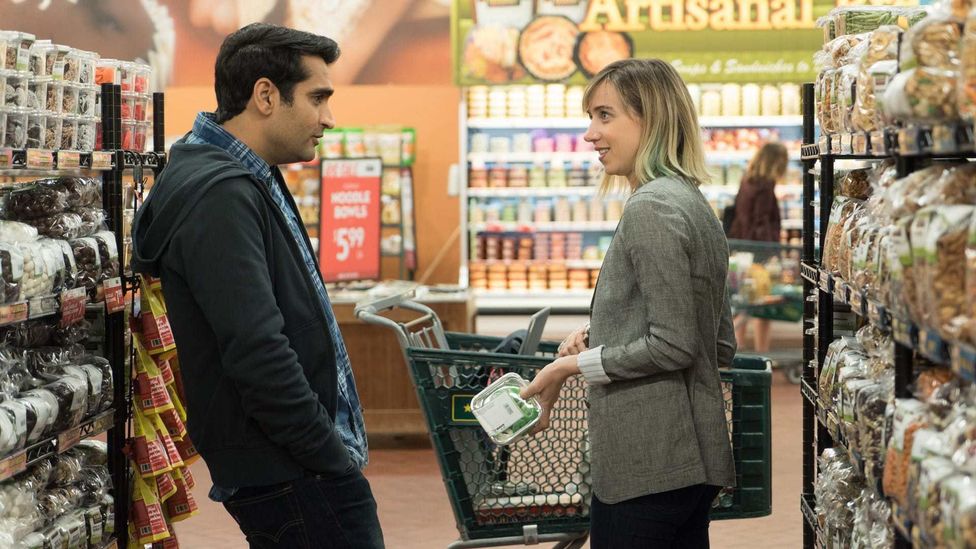
The Big Sick, which is partly about a Pakistani-American family, has become one of the most successful independent films of 2017 (Credit: Amazon Studios/Lionsgate)
While American and Canadian artists of South Asian descent (such as Russell Peters) have become internationally renowned, it bears noting that this is a two-way street. Comics from India are increasingly traveling around the world, their brand of humour reaching audiences far beyond the subcontinent. In July, Aditi Mittal, a trailblazing stand-up comic from Mumbai, became the first Indian female to get her own Netflix special, Things They Wouldn't Let Me Say – based on her popular live set. Mittal spent much of August performing at the Edinburgh Fringe Festival in Scotland, again being the first Indian female to earn the honour.
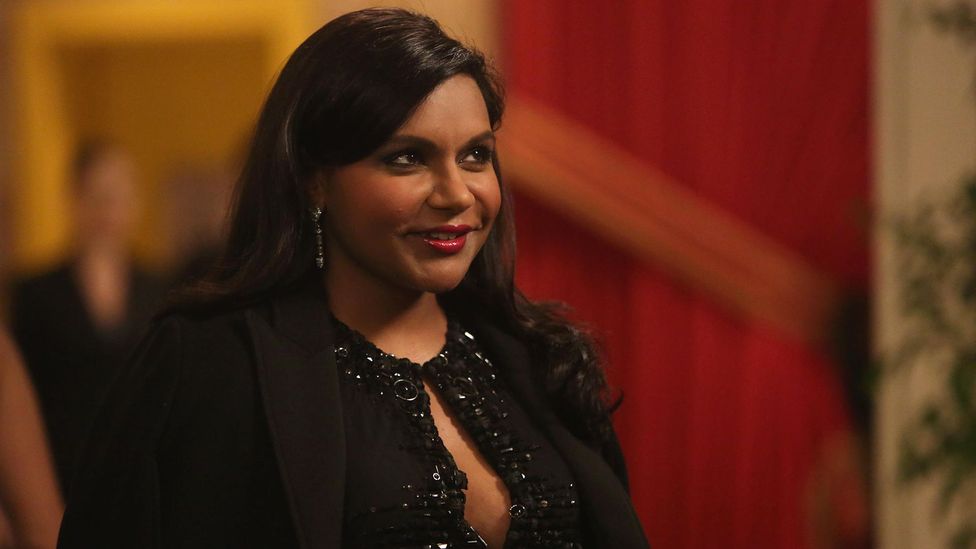
Mindy Kaling rose to fame as Kelly Kapoor on the US version of The Office, has subsequently starred in The Mindy Project and has written essay collections (Credit: Fox)
Mittal spoke about how, altruistic reasons or cultural representativeness aside, it increasingly makes economic sense for organisers to recognise the talents of South Asian-ethnicity performers. "The Indian diaspora is literally one-seventh of the world's population; who wouldn't want a slice of that pie?" she said. Earlier, performers like her or Vir Das – another Indian comic with a global footprint – would be invited in order to appease solely Indian audiences. Yet today her popularity has reached the stage where it's more common for Indians to be the minority in the audience.
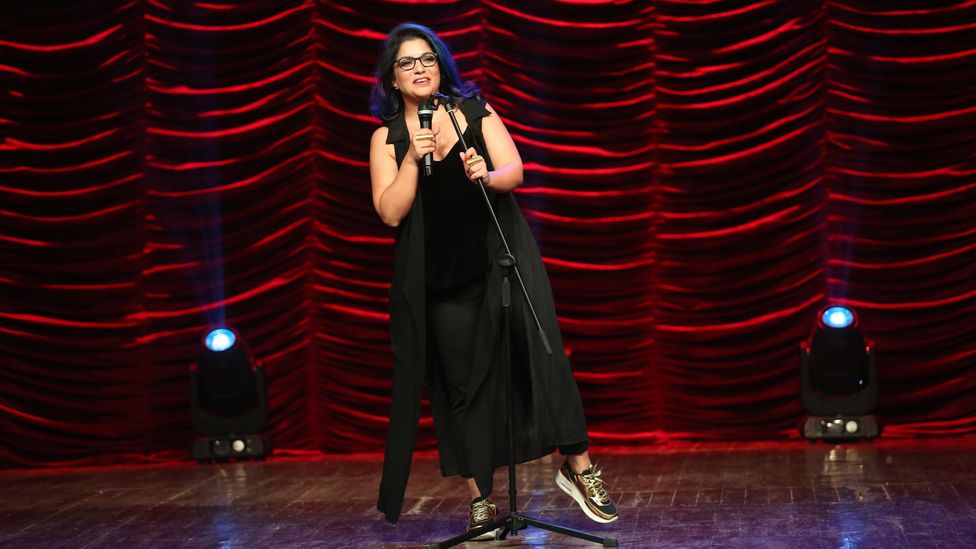
Aditi Mittal was the first Indian woman to have her own Netflix special and is working on another stand-up show now called Global Village Idiot (Credit: Netflix)
A major benefit of artists such as Nanjiani, Mittal and Minhaj becoming global celebrities is that they can use their platform to tackle issues that other celebrities – by virtue of hailing from different cultures – have simply not been able to address effectively. In 2015, after the US Supreme Court legalised gay marriage nationwide, it seemed like an anachronism that less than half of American Muslims supported the rights of homosexuals to be married. Minhaj took the opportunity to collaborate with author Reza Aslan and pen an open letter to the community, asking them to recognise the discrimination LGBT individuals faced and how that wasn't dissimilar from the lived experiences of many Muslims in the US. "He really massaged the piece, made sure… that we were respectful to all beliefs," said Aslan.
Mittal also noted that diverse voices on the stage can help people be more humanely engaged "to each other's lives," – adding, "as Chimamanda Ngozi Adichie says, it will 'unflatten' us and… make us more accepting of each other." That's just more proof that comedy can have a serious purpose after all.
If you would like to comment on this story or anything else you have seen on BBC Culture, head over to our Facebook page or message us on Twitter .
And if you liked this story, sign up for the weekly bbc.com features newsletter , called "If You Only Read 6 Things This Week". A handpicked selection of stories from BBC Future, Earth, Culture, Capital and Travel, delivered to your inbox every Friday.
Source: https://www.bbc.com/culture/article/20170908-the-daring-comedians-pushing-boundaries
0 Response to "Pakistani Guy Dressed Up Like Women Doing Comedy"
Post a Comment